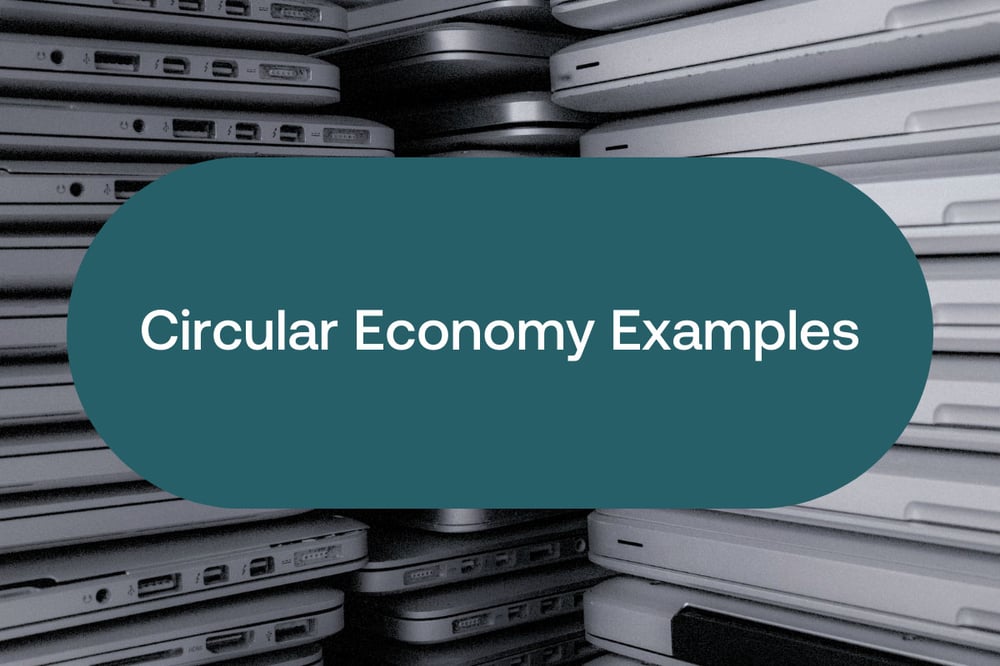You either love it or despise it - nonetheless, it’s time for Black Friday again.
Despite the negative connotation, Black Friday got its name after wins, rather than losses. Although there are many origin stories as to where the unofficial holiday got its name from, one popular version is that sometime in the 1950s people in the United States started taking the Friday after Thanksgiving off, focusing most of their time on shopping for the holidays. Consequently, it was the same time when retailers started seeing positive earnings and profits started being "in the black" - thus, Black Friday.
Most profitable time of the year
Till this day, the origin story lives up to its name, as Black Friday and its sister, Cyber Monday, have infiltrated the markets all over the world. This has created an insane frenzy of discounts and deals, making it one of the most profitable days for retailers. In fact, back in 2017 European retailers experienced a 261% increase in turnover on Black Friday compared to an average day. Meanwhile, online sales back in the States have tripled in the past seven years, and thanks to COVID, there are no signs of it slowing down.
Speaking of the pandemic, the overall online shopping spending has increased by 59% compared to last year. During the 2019 Black Friday, 40% of all shoppers decided to buy online, while in 2020 this number is expected to increase to 61%
What does Black Friday do to our planet?
The three most popular categories people consume during these shopping holidays are electronics, fast fashion, and plastic. There’s no denying the perks that Black Friday has: it’s a great time to stack up on presents for the holidays, and all of the deals make the more expensive products, like electronics, more attainable for everyone.
However, it does come at a cost. We’ve all seen the insanity that goes on in the States that has led to them having an official Black Friday death count, but beyond that, it’s taking a toll on our planet. Earth Rewards highlights four of the most environmentally harmful points that comes from these shopping holidays:
|
Increase of consumerism Dr. Diana Ivanova, research fellow at the University of Leeds' Sustainability Research Institute says that the sales stimulate overconsumption, materialism, and a work-and-spend culture. While the constant advertisement bombardment and pressure to get the latest goods worsens human wellbeing, it especially takes a toll on environmental wellbeing. A scientist at the independent research centre SINTEF, Kristen Svenja Wiebe, points out: "If everyone in the world consumed as much as the average European does, we would need three to four times the global resources." Packaging of the item plus added packaging used for shipping You might be wondering about the plastic we previously mentioned as one of the most consumed categories. While a big part of that is toys, for example, the biggest reason plastic is so high up the list is the packaging. Especially when an item is returned, the need for delivery and repackaging doubles, and since the majority of the used plastics aren’t recycled, or biodegradable. Delivery of the item In 2017, 81% of Black Friday purchases included home delivery. In order to keep up with demand, a diesel truck was leaving an Amazon fulfilment centre every 93 seconds at peak times. With online shopping and the need for home delivery exponentially increasing during 2020, this will continue to have a significant impact on the increase of air pollution and other environmental aspects. Waste and lack of recycling The constant development of smartphones, TVs, and consoles lead to millions of shoppers buying, and discarding old electronics, with only 20% being formally recycled. According to the UN environment program, global e-waste production is on track to reach 120 million tonnes per year by 2050 if current trends continue. This leads to copious amounts of toxic chemicals like lead and mercury leaking into the soil each year. |
Transforming Black Friday
However, hope is all but lost. A KPMG survey shows that 61% of UK consumers said they are more conscious of the environmental impact of their Black Friday and Cyber Monday habits. Back in 2019, French lawmakers even tried to ban Black Friday due to its environmental impact.
What can we, as consumers, do to consume responsibly on Black Friday?
The psychology behind Black Friday’s marketing is literally to create a sense of urgency and limited availability, making it hard for us to resist these deals. And we don’t necessarily have to! Here’s some things you can consider when shopping on Black Friday:
-
Go small. Especially during the time we’re currently living in, the smaller businesses need all of the support they can get. Black Friday being one of the most profitable days of the year, means much more to the smaller players than, let’s say, Amazon (which, by the way, accounted for 54,9% of all sales in 2019). So, go small!
-
Reconsider ownership. Especially with products like sports equipment, in an average household they don’t get used more than a few times a year. Instead of buying the latest gear every couple of years, save your money and storage space at home by preferring renting the gear. This way you can focus on investing more on the experiences and trying out different activities, all while helping the business out!
-
Plan ahead. Before participating in the discount-frenzy, plan out your purchases and the retailers you’re going to be buying from. Instead of buying on an impulse and probably overspending, you can focus on the things that you actually want and need. Also, take into consideration buying from brands which either produce their products in a sustainable way, or otherwise prefer for example environmentally friendly packaging and delivery methods.
-
Recycle. Planning ahead your purchases helps with not buying stuff you don’t need which will end up being unused. But the biggest problem is the old products: either properly recycle them, sell them off, or donate.
What can businesses do to sell responsibly on Black Friday?
Consumers are getting more and more aware of consumerism and its environmental impact, and while it’s great that companies decide to boycott Black Friday, only the big corporations can afford such bold moves for the greater good.
Businesses like Patagonia and REI, for example, have in the previous years donated their profits to environmental groups or even closed down completely for the day. By making these big statements, they're trying to raise awareness of the damages mass consumption has and encourage consumers to go enjoy the outdoors with their loved ones instead of participating in the hectic shopping season.
→ Learn more about how our favorite brands have spent sustainable Black Fridays.
Let's be honest, huge corporations like Patagonia can afford to boycott Black Friday and make a statement for the greater good. But smaller businesses do, especially when half of the world is on lockdown?
In our article "How your business can spend a sustainable Black Friday 2021" we go over what it means to run a sustainable business and how you can make a profit during Black Friday while still being sustainable. Here are some of the things we cover:
-
Support green initiatives & co-operate with environmental groups that fit your brand and values.
-
Offer experiences.
-
Offer access over ownership.
-
Be transparent & educate your consumers.
-
Offer eco-friendly options in your range of products.
-
Offer discounts on second-hand or refurbished purchases.
→ Learn more about the sustainable choices you can make and still profit off of Black Friday sales.
Summary
Where you are a consumer, or a business, there are many things you can do to make a change. We can collectively enjoy the great deals and profits Black Friday brings in a sustainable way that doesn't take a toll on our well-being and our planet. 🌍









